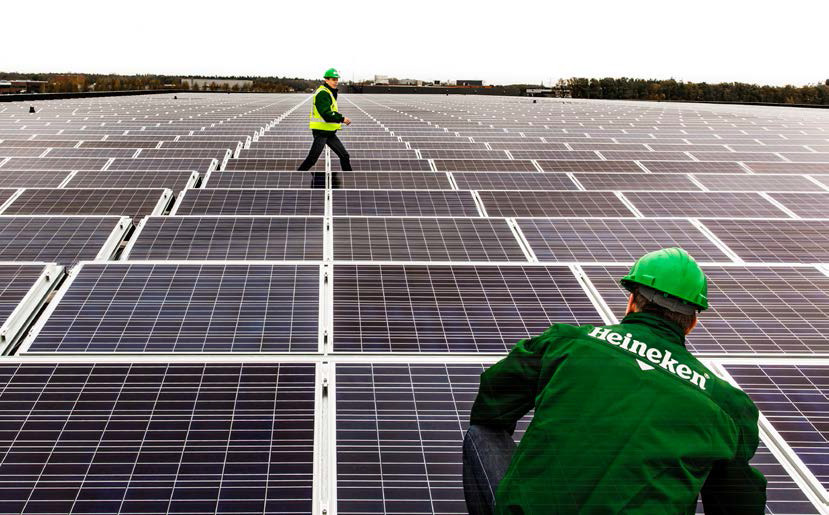Heineken has revealed that it utilises solar PV more than any other technology to increase the share of renewables in its energy mix, having installed 13MW at its breweries around the world.
Speaking at last week’s Clean Energy Summit, Anna Ollivier, corporate social responsibility advisor for Heineken, explained the company’s carbon emissions reduction strategy is based in part on investment in renewable energy.
It plans to reduce emissions from its production facilities by 40% through wider use of green electricity, as well as reducing its energy consumption. This has led to more than 60,000 solar panels being installed across its portfolio, meeting 2% of Heineken’s electricity demand.
Ollivier added that solar energy was particularly well-suited to Heineken’s CSR goals as the technology can be easily associated with its products.
“Consumers expect us to act responsibly and help them make a positive contribution so the way we linked the investment in renewable energy with brand is by providing them with ‘beer brewed by the sun’,” she said.
“Sun is a compelling story; who doesn’t like being on the terrace chilling out and enjoying a good beer? Everybody likes [this] so it’s a good way to connect with our consumers.”
The company has completed solar installations at locations around the world, including Italy, Belgium, the UK and Singapore, where a major rooftop installation is expected to generate 2.3 GWh of clean energy annually.
“If you go to Singapore and order a Tiger beer you will enjoy a beer 100% brewed by the sun; same in Italy with Birra Moretti…and if you go to the beautiful city of Vienna please enjoy a Ichnusa – you will enjoy the first carbon neutral beer,” Ollivier continued.
As recently as December 2015, the company completed rooftop solar installations at all eight of its distribution centre sites in the Netherlands. The installation programme will deliver a combined total of 3MWp and is expected to reduce annual energy costs by €100,000.
An additional 21% of renewable electricity is purchased under green certificates, meaning almost a quarter of the company’s electricity demand is met through renewables.
Heineken spans more than 70 countries, operating in more than 160 breweries worldwide and representing over 250 brands. While its efforts up until now have allowed it to grow its CSR presence in the market through renewables, Ollivier is under no illusions that there is still more to do.
“We are not there yet because we just started on renewable energy which like a lot of CSR topics is quite a long journey but we know that consumers expect us to do something,” she said.
The company is currently preparing a feasibility study in relation to renewable energy in Sierra Leone and other African markets as part of efforts to reduce its global carbon footprint further.
As well as wider adoption of renewables, the company will also continue to lower its energy consumption, which has fallen by 24% in manufacturing since 2008. According to the company’s latest sustainability report for 2015, the Manchester facility was Heineken’s top performing brewery worldwide, having lowered its total energy per hectolitre by 27%.






